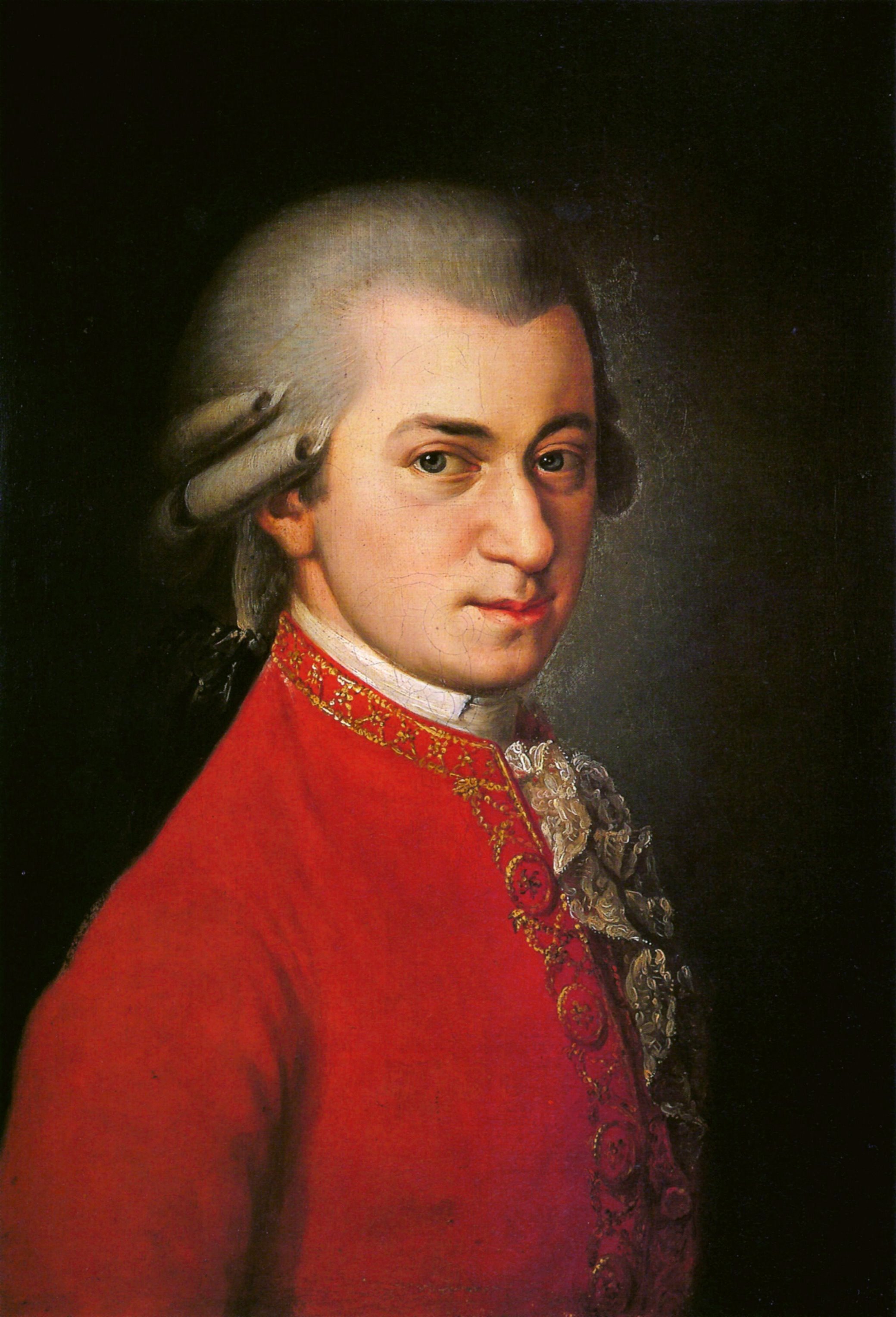Get Today in Masonic History into your Inbox. Sign up today for one of our email lists!
Need an article for your Trestleboard/Newsletter see our Use Policy
Wolfgang Amadeus Mozart Passes Away

Today in Masonic History Wolfgang Amadeus Mozart Passes Away in 1791.
Wolfgang Amadeus Mozart was an Austrian composer.
Mozart was born January 27th, 1756 in Salzburg. At the time Salzburg was part of the Holy Roman Empire and now is part of Austria. Mozart had an older sister who was nicknamed "Nannerl." Nannerl and Mozart were taught from a young age by their father Leopold Mozart. Leopold was well known in the music community of Salzburg and had written a violin instruction manual in the year Mozart was born. Leopold also composed music, although stopped when he realized his son's talent. Mozart and Nannerl were taught music, language and other things important to their upbringing by Leopold. Mozart sat and listened to her sisters lessons when he was just three years old. There is some debate whether Mozart's first composition occurred when he was 4 or 5 years old. Regardless of the one years difference, it was when he composed his first piece, Leopold knew his son was talented.
In his youth, Mozart traveled with his family throughout Europe. He and Nannerl gave performances, while Leopold billed them as prodigies. There is some debate, whether Leopold was hoping to make his fame and fortune from his children. This is doubtful based on various actions Leopold took in regards to Mozart and Nannerl. On two occasions Leopold took Mozart to Italy. On both trips Nannerl and Mozart's mother remained at home. In Milan, Mozart heard Miserere a 17th century composition which was owned by the Vatican. After hearing it twice, Mozart recreated it by memory, making it the fist unauthorized copy of the Vatican owned work. While in Milan Mozart also composed his first opera.
After retuning to Salzburg in 1773, Mozart received an appointment as a court musician for the Prince-Archbishop of Salzburg. Mozart was not happy with his appointment in Salzburg. He stayed at the appointment until 1775, although he took several trips during the time trying to find a new appointment.
In 1775, Mozart went to Paris. His fortunes were no better there. He found himself struggling to make a living. There were hints of an appointment as an organist at Versailles, although this was not a posting Mozart was interested in. As he struggled to make a living he began pawning items to make money. In July of 1778, Mozart's mother passed away. The same year, Mozart's father secured him an appointment in the Salzburg Court once again. Mozart took his time returning to Salzburg. He did not arrive there until January of 1779, hoping to find another appointment.
From the beginning of his appointment, Mozart was in conflict with the archbishop. Still looking to have other work become available, Mozart was taking offers from other patrons. The conflict came to a head when, after the archbishop forbade him from taking a job paying more than his annual salary, Mozart tried to resign and was initially refused. Mozart was later dismissed, literally, "with a kick in the arse" which was delivered by one of the archbishops stewards.
After leaving the archbishop, Mozart moved to Vienna and embarked on an independent career. He composed several pieces while in Vienna and became known as one of the finest keyboard players in Vienna. It was also in Vienna in 1786 and 1787, Mozart composed some of his most famous Operas, The Marriage of Figaro and Don Giovanni. It was also in 1787, Mozart attained a steady post with Emperor Joseph II as chamber composer.
At the end of the 1780's Mozart health had begun to fail. Despite his successes, his family was in massive debt. This is in large part due to Mozart's and his wife's extravagant lifestyle. He often spent an entire years salary on one or two extravagant items. He often attempted to borrow money from one of his Masonic brothers, Michael Puchberg. Several of the letters still exist where Mozart had written to Puchberg asking for assistance.
In 1791, Mozart composed The Magic Flute. He was present at the premier in September of the same year, despite his failing health. By November he was bedridden. It is unclear what illness afflicted Mozart, there are more than 100 ailments modern doctors have speculated were the cause of his death, including Mercury poisoning.
Mozart passed away on December 5th, 1791 at the age of 35.
Mozart was a member of the Vienna lodge, Zur Wohltätigkeit (Beneficence), being initiated in 1784 and being raised in 1785. His original lodge went through several mergers during the Imperial Masonic Reform. His new lodge was Zur Neugekrönten Hoffnung (New Crowned Hope).
This article provided by Brother Eric C. Steele.

